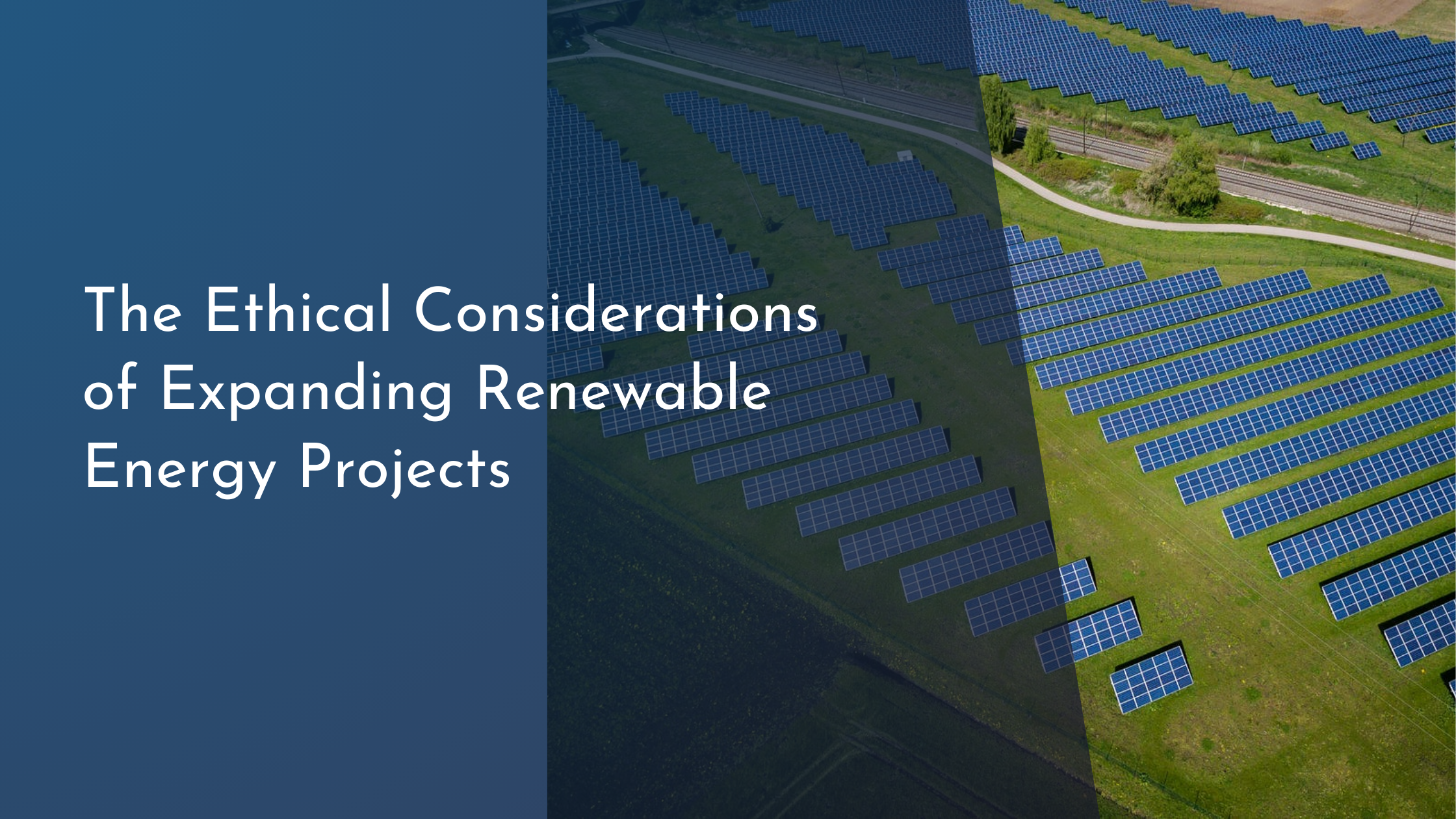The Ethical Considerations of Expanding Renewable Energy Projects
The world stands on the brink of a transformative energy transition, with renewable energy projects poised to replace fossil fuels and significantly mitigate climate change. As these projects multiply, they promise a cleaner, sustainable future. However, as with any major shift, there are ethical considerations to address. By understanding and navigating these ethical landscapes, we can ensure that the expansion of renewable energy not only protects the planet but also respects and uplifts communities worldwide.
Understanding the Ethical Landscape of Renewables
The ethical landscape of renewable energy is complex and multifaceted, encompassing a variety of environmental, social, and economic considerations. At its core, the push for renewables is a response to the urgent need for sustainable energy sources that reduce greenhouse gas emissions and combat climate change. However, while these projects are inherently designed to be environmentally friendly, their implementation must still be managed ethically to prevent unintended consequences, such as habitat destruction or the displacement of wildlife populations. Developers and policymakers must therefore engage in thorough environmental impact assessments to ensure that renewable energy initiatives do not inadvertently harm the ecosystems they seek to protect.
Beyond environmental concerns, renewable energy projects can raise significant social and cultural ethical issues. The deployment of large-scale wind farms, solar fields, and hydroelectric projects often requires vast tracts of land, which can affect local communities, especially in rural or indigenous areas. These projects must be developed with sensitivity to local cultures and communities, ensuring that they are consulted and included in decision-making processes. Meaningful engagement not only ensures that projects are more likely to succeed but also helps to safeguard the rights and traditions of those who inhabit the affected regions.
Balancing Environmental and Social Impacts
The balance between environmental protection and social well-being is a delicate one in the context of renewable energy projects. While the primary aim of these projects is to reduce carbon footprints and protect natural resources, they can sometimes lead to social upheaval or conflict over land use and resource management. For instance, the construction of a large solar farm might contribute significantly to reducing greenhouse gas emissions but could also necessitate the relocation of local communities or disrupt traditional land uses. It is essential to adopt a holistic view that considers both environmental benefits and potential social impacts, aiming for solutions that minimize negative consequences on all fronts.
Strategies for balancing these impacts often involve collaborative efforts with local stakeholders to identify mutually beneficial outcomes. This can include investing in local infrastructure, providing employment opportunities, or creating educational programs to ensure communities are not only compensated but also empowered by the presence of renewable projects. By fostering partnerships and encouraging input from diverse groups, renewable energy projects can be designed to enhance local resilience and promote sustainable development, thereby aligning environmental goals with social justice.
Navigating Economic Fairness and Equity Issues
Economic fairness and equity are critical ethical considerations in the expansion of renewable energy. As the sector grows, it is crucial to ensure that all communities, particularly those historically disadvantaged, have access to the benefits of renewable energy. This includes not only access to sustainable energy sources but also economic opportunities that arise from the growing green economy. Policies that support equitable distribution of energy resources and job creation are essential to prevent exacerbating existing social inequalities and to foster inclusive economic growth.
Investments in renewable energy should prioritize fairness in both local and global contexts. On a local level, this means providing affordable energy options to underprivileged communities and ensuring fair compensation for land use or resource extraction. Globally, it involves addressing disparities between developed and developing nations in terms of technology transfer and financial support. By embracing principles of equity and justice, the renewable energy sector can contribute to a more balanced global economy where the benefits of sustainability are shared broadly.
A bright future with ethical renewables is not only possible but imperative for the health of our planet and its inhabitants. By thoughtfully addressing the ethical considerations inherent in renewable energy expansion, we can create projects that are environmentally responsible, socially inclusive, and economically fair. As we navigate this transition, it is crucial to foster collaboration, encourage innovation, and remain committed to principles of equity and justice. With these ethical foundations in place, the renewable energy sector can lead the charge towards a sustainable, prosperous future for all.

